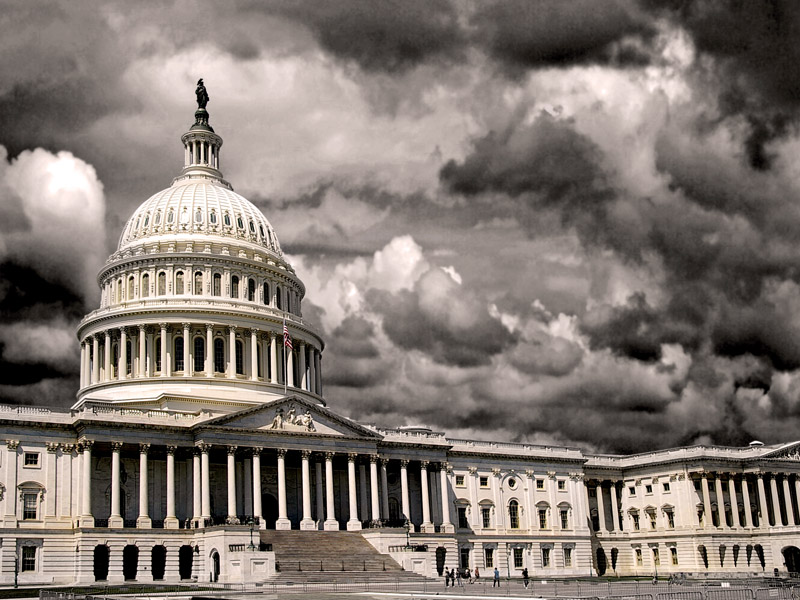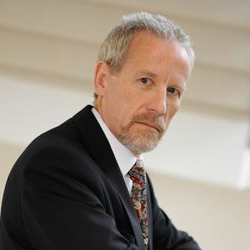
by Keith Grint
Emeritus Professor, Warwick University, UK
- 6 November 2020
Share:
In 1768 Sir James Porter, a British diplomat in Istanbul, reflected on the state of the Ottoman Empire, then beginning a war with Russia, which marked the first of a sequence of military defeats. He recalled a Turkish proverb to account for it: ‘The fish rots from the head.’ Porter suggested that the corrupt and weak leadership of the Ottoman Empire was ultimately responsible for the failure and that this characteristic coloured the whole of Turkish society. In short, the rot started at the head and subsequently traveled through the whole body.
When Donald Trump began his presidency four years ago, his inauguration speech on 20 January 2017 railed against the current state of the USA: “This American carnage stops right here and stops right now” (“Inaugural Address,” 2017). Four years later, on 6 January 2021 as the votes were about to be confirmed in the Capitol, and after what must be one of the most divisive presidencies since the U.S. Civil War, Trump unleashed the very carnage he had promised to end. He told his supporters: “We will never concede. It doesn’t happen. You don’t concede when there’s theft involved…. Our country has had enough. We will not take it anymore…. we will stop the steal…. we won this election and we won it by a landslide …. We’re going to walk down to the Capitol – – And we’re going to cheer on our brave senators and congressmen and women and we’re probably not going to be cheering so much for some of them…. You have to show strength….” (Jacobo, 2021).
Trump had been forewarning of election fraud for months and called on his supporters to prepare for 6 January 2021 as the last chance to protest the ‘stolen election.’ When the Black Lives Matter protest took to the streets outside the Capitol on 1 June 2020, they were met with solid walls of well-armed police and the National Guard (Borger, 2021). When Trump’s supporters stormed the Capitol, the forces of law and order where extremely thin on the ground, and the mob found forcing an entry relatively easy. After five deaths, 56 officers injured, 68 arrests, and scenes of riot inside the Capitol shown live around the world, Trump eventually asked his supporters to go home, while reminding them that the election had been stolen. But the rioters, having done as summoned, had to be forced out of the Capitol building. The following day Trump rounded on them calling for “an orderly transition of power” after the “heinous attack… I am outraged by the violence… I immediately deployed the National Guard…. Now tempers must be cooled… My only goal was to ensure the integrity of the vote. In so doing, I was fighting to defend American democracy…. This moment calls for healing and reconciliation…” (“President Trump Releases Video,” 2021). So how do we explain this sudden volte-face: from incitement to condemnation? Did Trump suddenly understand his culpability and become ‘presidential’ at last, or might there be another explanation?
If we accept that Sir James Porter might have a point, that leadership ultimately bears the responsibility for what happens in organizations and countries, then we can turn to theories of ‘permission giving’ and scapegoating to explain this. We know that followers are often reluctant to engage in risky behaviour until others, and particularly leaders, give them permission to do so. Thus, the rise of Hitler coincides with an explosion of public antisemitism in Germany, and something similar happened in the UK when Brexit ‘gave permission’ for some of its supporters to articulate racist opinions. Indeed, there are clear correlations with attacks upon immigrants (Brexit “Major Influence”, 2019). Thus, public debates are altered by the role of leaders in their voicing of opinions that were hitherto regarded as either too divisive or too outrageous to be made public. Once permission is given the social controls that previously inhibited such behaviour disappear.
But what happens when the permission-giving of leaders to engage in dubious or criminal practices goes awry? The first thing to note is how leaders seldom articulate their wishes in clearly illegal terms. They rarely say, “go riot,” though sometimes they do. More usually they say, “march on the building,” or, “you know what you need to do,” knowing that this will be understood by their followers as permission to riot or whatever the leader tacitly implies. What happens next depends upon what happens next. Should the riot or attack be deemed successful, leaders will traditionally take responsibility, but if it fails, then leaders usually start distancing themselves and denying culpability. Indeed, they often start to scapegoat those very followers that they have just urged forward.
Should the riot or attack be deemed successful, leaders will traditionally take responsibility, but if it fails, then leaders usually start distancing themselves and denying culpability. Indeed, they often start to scapegoat those very followers that they have just urged forward.
This pattern of behavior has a long history, either in the sacrificial nature of leader-follower relations (Grint, 2010) or in military campaigns when a group of soldiers were given very important but near impossible tasks that would see the goal of the leader achieved if necessary at the expense of the group. The French call these soldiers les enfants perdus — the lost children. The British call them the ‘forlorn hope’ — which is actually a mistranslation of the original Dutch term verloren hoop (lost troop). Such groups — usually an admixture of volunteers seeking glory or the extra wages commonly associated with such suicidal missions and criminals given one last chance to redeem themselves — played a significant role in the storming of castles or in leading assaults where few were expected to survive. In a contemporary context one might see how Trump used his supporters to storm the Capitol, knowing that the tactic might fail and prove counter-productive but willing to sacrifice them if that turned out to be the case. Whether Trump’s tardy distancing is sufficient to protect him from impeachment or an attempt to use the 25th amendment to remove him is not clear at the time of writing, but the long-term implications of les enfants perdus are significant. Most political parties are ‘broad churches’ containing significant divisions, but they stay together in the context of the greater goal of securing political power. However, the American Republican Party in 2021, like the Social Democratic Party of Germany during and just after the First World War, faces a significant risk to its integrity. More importantly, is American democracy at risk from the behaviour of Donald Trump and his cabinet?
Again, the historical record is important here because many countries have faced down threats to their governance systems and this is usually because their institutions are robust enough to see off the machinations of errant leaders. But this is not a given. There are sufficient examples of institutional change across the globe to know that there is something else at play besides the internal integrity of institutions. These examples show, in sum, that institutions only survive if sufficient numbers of leaders speak out to defend them. Biden has done so on two occasions, but that will likely not be enough. The survival of American democracy will probably require Republicans to do the same — even at the cost of their own careers. In effect, they must become what Hans Enzensberger (1997) calls “the heroes of retreat.”
Enzensberger suggests that our focus on leaders as heroes omits the critical role that leaders play when they need to disappoint their followers by telling them that the game is up and that they must accept defeat. As he suggests, surrendering an untenable position is the most difficult act in politics, and this act will almost certainly destroy the reputation of the leader, but it is one that must be played if the greater body-politic is to be saved. Ironically then, while many look to the new President elect and Vice-president elect to steer the USA out of this morass, saving the constitution for the greater good also depends on the role of senior Republican figures — with or without Trump.
Brexit “Major Influence” in Racism and Hate Crime Rise. (2019, June 19). BBC. www.bbc.co.uk/news/uk-wales-48692863 accessed 8 January 2021.
Borger, Julian. (2021, January 7). Maga v BLM: How Police Handled the Capitol Mob and George Floyd Activists – in Pictures. The Guardian. https://www.theguardian.com/us-news/2021/jan/06/capitol-mob-police-trump-george-floyd-protests-photos
President Trump Releases Video in Response to the Capitol Riot. (2021, January 7). The News with Shepard Smith. CNBC. https://www.cnbc.com/video/2021/01/07/president-trump-releases-video-in-response-to-the-capitol-riot.html
Enzensberger, H.M. (1997). The Hero as Demolition Man. Zig Zag: The Politics of Culture. The New Press.
Grint, K. (2010). Leadership and the Sacred. Organization Studies, 31(01), 89–101.
Jacobo, Julia. (2021, January 7). This Is What Trump Told Supporters Before Many Stormed Capitol Hill. ABC News. https://abcnews.go.com/Politics/trump-told-supporters-stormed-capitol-hill/story?id=75110558
The Inaugural Address. (2017, January 20). Remarks of President Donald J. Trump – as Prepared for Delivery. Inaugural Address, Friday, January 20, 2017, Washington, D.C. The White House. https://www.whitehouse.gov/briefings-statements/the-inaugural-address/

Keith Grint is Professor Emeritus at Warwick University. He has held Chairs at Cranfield University and Lancaster University and was Director of Research at the Saïd Business School, Oxford University. His books include The Arts of Leadership (2000); Organizational Leadership (with John Bratton and Debra Nelson); Leadership: Limits and Possibilities (2005); Leadership, Management & Command: Rethinking D-Day (2008); and Leadership: A Very Short Introduction (2010). He is writing a book on Mutiny. He received ILA’s Lifetime Achievement Award in 2018.

